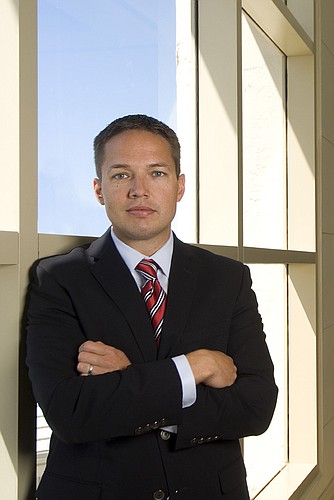- October 16, 2024
-
-
Loading

Loading

You don't have to tell Gulf Coast entrepreneurs that delays by local government bureaucrats cost them time and money.
But a new Naples-based free-enterprise research organization called Foundation for Government Accountability recently measured the impact on government of a one-week bureaucratic delay in the creation of startup business in Florida.
Their conclusion: A one-week delay of a startup in Florida by government bureaucrats costs the state nearly $10 million in unemployment benefits and lost sales tax revenue. The cost of that delay to county government is $1.74 million and $670,000 to municipal government in lost property taxes and fees.
“Startups have to interact with government the most,” says Tarren Bragdon, the CEO of the group that got its start in June and has raised $500,000 so far. Naples resident Robert Levy, who also serves as the chairman of the Cato Institute in Washington, D.C., is a member of the board of the foundation.
“The next step is to study how long it takes to get a permit and inspections in Lee and Collier counties,” says Bragdon. The group obtained the data it needed from Collier after three meetings with staff, but Lee County officials so far have rejected the group's public-records request, Bragdon says. “They're stonewalling us,” he says.
Bragdon isn't a neophyte to the political scene. The father of four was the youngest person elected to the Maine state legislature in 1996. He served for two terms and became an expert in health care policy. Over the years, he's been a political consultant and most recently was CEO of the Maine Heritage Policy Center, raising more than $1 million a year for that free-enterprise research group.
Bragdon moved to Florida last year both for lifestyle and professional reasons. But Florida also offers more opportunities than Maine to make significant contributions to promoting free enterprise because of its size. “Florida is so pivotal economically and politically,” he says.
On the state level, the organization has already scored success with the inclusion of a local option in recently passed legislation to increase the exemption for the tangible personal property tax for businesses. As a result of the legislation, Florida voters will have the opportunity to approve this pro-business constitutional amendment on November's ballot. “This could really help grow the economy, particularly in the border counties with Georgia and Alabama,” Bragdon says, noting that no other Southern states have such an exemption.
Once one municipality decides to increase the exemption or eliminate the tax altogether, others will do the same because of the competition to attract business. “I envision a domino effect,” Bragdon says, pointing to a case in Vermont where 210 out of 272 municipalities now exempt all tangible personal property from municipal property tax. In fact, Joyce Errecart, the organization's senior fellow for tax policy who helped craft Florida's legislation, is the former Vermont tax commissioner.
These are the kinds of wins that generate goodwill. “It's helpful with supporters and it's a feather in our cap,” says Bragdon.
Other current projects include highlighting Florida's pilot Medicaid program started when Jeb Bush was governor that lets patients choose their own medical plans. If the program were established statewide, it would save taxpayers $901 million annually, Bragdon says.
Another project is creating a free-enterprise economic index that will rank all the counties in Florida. Using 15 to 20 criteria, the ranking will tell entrepreneurs where the best places to do business in Florida might be. A lot of data is already available at FloridaOpenGov.org, a website the organization has established to track government spending.
Ultimately, one objective would be to identify the obstacles to doing business in a county or municipality and recommend solutions to remove them. Specifically, the data might even show if one inspector is especially slow, for example.
To do all the things the Foundation for Government Accountability wants to do, Bragdon says the organization must raise enough money to operate on a $2 million budget. “The biggest challenge is getting noticed,” says Bragdon. “We're the new kids on the block.”